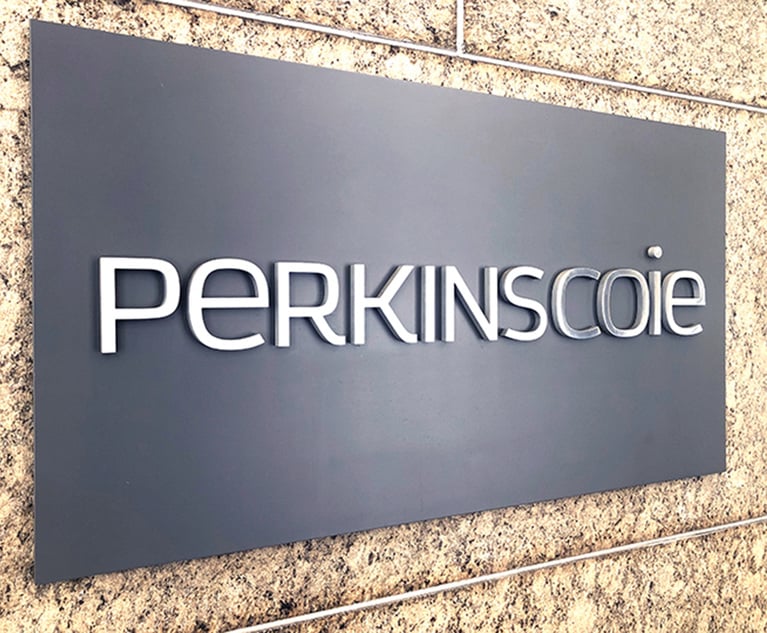'The Obvious Answer': Ex-House Attorneys Back Democrats' Lawsuit for Trump Tax Returns
The brief was filed by a bipartisan group of former House counsel.
September 20, 2019 at 06:09 PM
6 minute read
 Kerry Kircher, left, and Irvin Nathan, right.
Kerry Kircher, left, and Irvin Nathan, right.
A bipartisan group of former House lawyers are backing the House Ways and Means Committee's lawsuit seeking President Donald Trump's federal tax returns, warning a ruling that lawmakers can't go to court to enforce their subpoenas could significantly damage Congress' oversight authorities.
In an amicus brief filed in the case at the District Court for the District of Columbia on Friday, the former House counsels challenge Trump's legal claims that the House lacks standing to bring forward the case.
"The primary question that this brief addresses—whether the entity that issued the subpoena has standing to enforce it—is equally basic. Of course it does. How could it not?" the brief reads.
Former House general counsels Kerry Kircher, Irvin Nathan, Geraldine Gennet and Thomas Spulak are all on the brief, as are former acting House general counsels William Pittard and Charles Tiefer.
Robbins, Russell, Englert, Orseck & Untereiner attorneys Lawrence Robbins, Wendy Liu and Hunter Smith filed notices of appearances for the ex-House attorneys.
The brief urges U.S. District Judge Trevor McFadden of the District of Columbia to dismiss Trump's arguments that past rulings allowing Congress to go to court to enforce subpoenas were incorrectly decided and that the typical process used to share documents between the two branches should be allowed to play out.
"In these circumstances, judicial abstention would not just hand the Executive a victory in its effort to resist this subpoena, but also disturb the functioning of Congressional oversight more generally," the filing states.
The former House attorneys pointed to Trump administration officials' assertions that the lawmakers would "never" get the tax returns, after the documents were requested under a federal statute that states the IRS "shall" hand over the returns to the committee when requested.
Treasury Secretary Steven Mnuchin denied the request, claiming the lawmakers lacked a "legitimate legislative purpose." And he gave the same reasoning in rejecting a subpoena issued by the committee for the returns.
The former House lawyers said that when executive branch officials fail to comply with subpoenas, a committee can either file a civil suit to enforce the subpoena or vote to refer the officials for criminal prosecution. But charges are rarely pursued in criminal contempt cases, as that decision is made at the discretion of the Justice Department.
They also rejected the possibility that Congress could hold officials in inherent contempt to comply with a subpoena, saying "that power exists today more in theory, than in reality." And they said that other forms of leverage, like denying funding requests from federal agencies, aren't sufficient enough to address the harm done by noncompliance with a subpoena.
The attorneys said that when courts have ruled on whether the House can go to court to enforce subpoenas, "both times it reached the obvious answer: Yes."
"Indeed, Defendants all but concede that every court to address the issue has held that houses of Congress, and their committees, have standing to enforce subpoenas. Their efforts to persuade this Court to become the first to hold the contrary are without merit," the brief reads.
The House lawyers also rejected Trump's argument that the full House must authorize the lawsuit, noting that the chamber's rules state that is not the case.
And they further came out against the claim that the courts shouldn't be involved in a dispute between two other branches of the federal government: "Declining to exercise jurisdiction under these circumstances would upset, rather than restore, the balance of power among co-equal branches."
The lawyers even pointed to a prior ruling from McFadden himself, in which he wrote that "informational injuries to Congress arise primarily in subpoena enforcement cases."
"The stakes here are not just the Executive's failure to comply with a single Congressional subpoena, but the much broader calibration of inter-Branch relations," the brief states.
"Far from respecting the Constitution's carefully crafted separation of powers, declining to enforce the Committee's subpoena would grant the Executive the unbridled authority to evade Congressional oversight," the House attorneys concluded.
Justice Department lawyers and Trump's private attorneys at Consovoy McCarthy argued in a joint filing earlier this month that McFadden should dismiss the House lawsuit because the committee can't "conscript the Judiciary on its side of a dispute with the Executive Branch over a congressional demand for information."
McFadden ruled in June that the House did not have standing to sue the Trump administration over the diversion of military funds for a border wall. But he noted in that opinion, as highlighted in Friday's amicus brief, that lawmakers could go to court to enforce subpoenas.
"Indeed, using the Judiciary to vindicate the House's investigatory power is constitutionally distinct from seeking Article III standing for a supposed harm to Congress's Appropriations power," the judge, a Trump appointee, wrote in the opinion. "Unlike the Appropriations power, which requires bicameralism and presentment, the investigatory power is one of the few under the Constitution that each House of Congress may exercise individually."
Read more:
DC Judge in Trump Tax Returns Case Agonizes Over a Bunch of What-Ifs
After Speedy Subpoena Cases, Trump Tax Disputes Linger
'These Arguments Are Fabricated': House's Doug Letter Rips DOJ Brief Backing Trump
Trump's Lawyers Drag Justices Into DC Circuit Subpoena Fight
This content has been archived. It is available through our partners, LexisNexis® and Bloomberg Law.
To view this content, please continue to their sites.
Not a Lexis Subscriber?
Subscribe Now
Not a Bloomberg Law Subscriber?
Subscribe Now
NOT FOR REPRINT
© 2025 ALM Global, LLC, All Rights Reserved. Request academic re-use from www.copyright.com. All other uses, submit a request to [email protected]. For more information visit Asset & Logo Licensing.
You Might Like
View All
Trump's DOJ Delays Releasing Jan. 6 FBI Agents List Under Consent Order
3 minute read
Judge Grills DOJ on Trump’s Birthright Citizenship Executive Order

Perkins Coie Backs Challenge to Trump's Ban on Transgender Military Service
4 minute read
Selendy Gay Files Lawsuit Challenging Trump's Workforce Reclassification EO
2 minute readTrending Stories
- 1ACC CLO Survey Waves Warning Flags for Boards
- 2States Accuse Trump of Thwarting Court's Funding Restoration Order
- 3Microsoft Becomes Latest Tech Company to Face Claims of Stealing Marketing Commissions From Influencers
- 4Coral Gables Attorney Busted for Stalking Lawyer
- 5Trump's DOJ Delays Releasing Jan. 6 FBI Agents List Under Consent Order
Who Got The Work
J. Brugh Lower of Gibbons has entered an appearance for industrial equipment supplier Devco Corporation in a pending trademark infringement lawsuit. The suit, accusing the defendant of selling knock-off Graco products, was filed Dec. 18 in New Jersey District Court by Rivkin Radler on behalf of Graco Inc. and Graco Minnesota. The case, assigned to U.S. District Judge Zahid N. Quraishi, is 3:24-cv-11294, Graco Inc. et al v. Devco Corporation.
Who Got The Work
Rebecca Maller-Stein and Kent A. Yalowitz of Arnold & Porter Kaye Scholer have entered their appearances for Hanaco Venture Capital and its executives, Lior Prosor and David Frankel, in a pending securities lawsuit. The action, filed on Dec. 24 in New York Southern District Court by Zell, Aron & Co. on behalf of Goldeneye Advisors, accuses the defendants of negligently and fraudulently managing the plaintiff's $1 million investment. The case, assigned to U.S. District Judge Vernon S. Broderick, is 1:24-cv-09918, Goldeneye Advisors, LLC v. Hanaco Venture Capital, Ltd. et al.
Who Got The Work
Attorneys from A&O Shearman has stepped in as defense counsel for Toronto-Dominion Bank and other defendants in a pending securities class action. The suit, filed Dec. 11 in New York Southern District Court by Bleichmar Fonti & Auld, accuses the defendants of concealing the bank's 'pervasive' deficiencies in regards to its compliance with the Bank Secrecy Act and the quality of its anti-money laundering controls. The case, assigned to U.S. District Judge Arun Subramanian, is 1:24-cv-09445, Gonzalez v. The Toronto-Dominion Bank et al.
Who Got The Work
Crown Castle International, a Pennsylvania company providing shared communications infrastructure, has turned to Luke D. Wolf of Gordon Rees Scully Mansukhani to fend off a pending breach-of-contract lawsuit. The court action, filed Nov. 25 in Michigan Eastern District Court by Hooper Hathaway PC on behalf of The Town Residences LLC, accuses Crown Castle of failing to transfer approximately $30,000 in utility payments from T-Mobile in breach of a roof-top lease and assignment agreement. The case, assigned to U.S. District Judge Susan K. Declercq, is 2:24-cv-13131, The Town Residences LLC v. T-Mobile US, Inc. et al.
Who Got The Work
Wilfred P. Coronato and Daniel M. Schwartz of McCarter & English have stepped in as defense counsel to Electrolux Home Products Inc. in a pending product liability lawsuit. The court action, filed Nov. 26 in New York Eastern District Court by Poulos Lopiccolo PC and Nagel Rice LLP on behalf of David Stern, alleges that the defendant's refrigerators’ drawers and shelving repeatedly break and fall apart within months after purchase. The case, assigned to U.S. District Judge Joan M. Azrack, is 2:24-cv-08204, Stern v. Electrolux Home Products, Inc.
Featured Firms
Law Offices of Gary Martin Hays & Associates, P.C.
(470) 294-1674
Law Offices of Mark E. Salomone
(857) 444-6468
Smith & Hassler
(713) 739-1250








